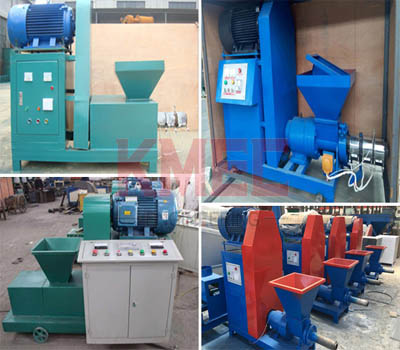Conditions for setting up biomass briquette factory
With the enhancement of environmental awareness and the growth of renewable energy demand, as a clean energy, biomass briquette has been paid more and more attention. Setting up a biomass briquette factory can not only promote the recycling of resources, but also bring economic benefits. However, successful operation of a briquette plant requires the following key conditions:

1. Sufficient supply of raw materials
The main raw materials of biomass briquette include crop straw, sawdust, rice husk, peanut shell and so on. Therefore, the site should be selected in areas rich in raw materials, such as agricultural developed areas or wood processing enterprises gathering places. The stability of raw material supply and transportation cost directly affect the production cost and profit.
2. Site and equipment
The briquetting factory needs a site suitable for construction, including production workshop, raw material stacking site and finished product storage area. In addition, it is necessary to purchase production equipment such as briquetting machine, crusher and drying equipment. The site should have good road traffic conditions to facilitate the transportation of raw materials and the export of products.
3. Technology and technology
The production of biomass briquette needs certain technical support, including raw material treatment, drying, pressing and other technological processes. Investors need to have a certain understanding of the production process, or hire professionals familiar with related technologies. At the same time, the factory needs to ensure that the product quality meets the national or industry standards to ensure market competitiveness.
4. Market demand and sales channels
Before starting a briquetting factory, it is necessary to fully investigate the market demand. The main applications of biomass briquetting include household heating, industrial boiler fuel, etc. Therefore, the target customer groups should be defined and stable sales channels should be established. Cooperation with energy companies, heating enterprises or local governments is an effective way to expand the market.
5. Policy support and environmental protection requirements
Biomass energy industry is usually supported by government policies, such as tax incentives or subsidies. But at the same time, the factory should strictly abide by environmental protection laws and regulations to avoid production stoppage or fines due to pollution problems. Therefore, in site selection and construction, the treatment scheme of waste gas, waste water and solid waste should be planned in advance.
6. Capital and management ability
Starting a biomass briquette factory requires a certain initial investment, including equipment purchase, site construction and raw material procurement. In addition, it is necessary to have good management skills, including cost control, staff management and market operation, to ensure the long-term stable operation of the factory.

